Hello ji,
I know this post comes after a super long silence from me.
I thought today would be a beautiful day to restart posting because it holds the reason for my silence in its name.
Happy Mental Health Day to you and everyone you love. ❤️
Here’s to normalizing taking a mental health break now and again because we are all human.
On to business…
As we all filed out of the meeting room, I was full of nervous energy over what I had just witnessed.
I turned to my colleague, Sumit. “Wow, what a meeting, eh?”
“Erm, yeah, I guess”, he said.
“I feel bad for Rahul.”, I said.
“What do you mean? He wasn’t even in there. He got stuck in traffic so he missed the meeting, remember?”
“Of course I do. Wait, what do you think just happened in there?”
“Another normal meeting, I guess? The boss gave out to-dos on the project. What else?”
My jaw dropped. “What! No! That’s not half of what happened in there!”
“Eh? What do you mean?”, he now looked genuinely worried about my health and sanity.
But I could see that I was dealing with a civilian here.
So I took a deep breath and launched into it…
“Last meeting, Boss had asked Mr Agarwal to lead the project. But yesterday they both had that disagreement about the rollout, remember?
So today, Boss completely sidelined him. He was talking to Mr Gupta the whole time, as if he was leading it.
If you look carefully at that to-do list, Boss has assigned all the leadership tasks to Mr Gupta, especially the prestigious press conference.
Despite being senior, Mr Agarwal has been relegated to the back end - managing all the nastiest bits and people.
This meeting was Boss sending a big message. He did not even make eye contact with Mr Agarwal all through.
And the message was duly received. Poor Agarwalji was wringing his hands the whole time. He walked out without a word at the end of the meeting. He is clearly furious. His team is going to pay the price for his mood today.
Especially Rahul, who chose the wrong day to get stuck in traffic!”
Sumit’s jaw was now hanging mid-air.
“You got all that from a 10min conversation?”
And it was my turn to look confused.
“Of course I did. You didn’t?”
I used to feel quite proud of this ‘superpower’ I had of reading people’s emotions. I would feel sorry for ‘civilians’ like Sumit who did not have it.
Interestingly, the most clueless of these ‘civilians’ I met happened to be men - and I always wondered why.
We will get into that later.
But first comes the shocking moment when I realize that carrying the burden of everyone’s feelings all the time is - surprise, surprise - not a superpower.
Turns out, it is an insane thing to do - and an even more insane thing to be proud of.
On an unrelated note, I am the eldest daughter in my family.
Growing up, I was called ‘chhoti maa’ (Junior Mom) by my family - an affectionate reference to how protective I was of my brother, despite being only two years older.
This moniker - ‘chhoti maa’ - used to puff me up with pride every time I heard it.
Another insane superpower you could note down against my name.
This post is all about how my two insane superpowers are actually not as unrelated as I thought.
The Protector
Radhika is the eldest of three siblings.
“I was the ‘badi didi’ (big sister) and always felt the grandeur around that title. I would do everything in my power to live up to the honour.
I remember an incident back at school when one of my siblings was being bullied by an elder kid. When my mother found out about it, she did not call the school, or confront the bully’s parents.
She scolded me.
‘You are an elder sister. Nobody should touch your siblings when you are there in school. They should feel your protection. It is your job to make sure they don’t get hurt.’
I distinctly remember thinking, ‘Well, then, who is going to protect ME?’”
But solving everyone’s problems is precisely the job description that came with Radhika’s grand title in the family. She carries this burden to this day, and recounted how it continues to haunt her.
“Being badi didi usually meant putting the needs of everyone in the family ahead of my own. It also meant taking on responsibility for the feelings of others, while systematically ignoring my own.
Today, I consciously try to steer away from these ‘badi didi’ instincts, especially at work. But the tougher the situation, the harder they are to fight.
I recently started a new role as the leader of a team working on a high pressure project. Just last week, there was a crisis at work. I was probably a bit insecure, being new to the job.
So the badi didi instincts took charge. I dove right in to rescue my team. Suddenly, they were my siblings and I was ready to fight any bully to protect them. I averted the crisis and tied all the loose ends.
But to my dismay, my boss told me that he was disappointed in my handling of the situation. He said that I should have let the team members take accountability instead of taking it all on myself.
I was aghast with myself, because looking at the evidence, I completely agreed with his feedback. I thought I had left my eldest-daughter tendencies in the past where they belong. But I now realize that I might never really be free of them.”
Who will didi the didi?
One of Avanya’s earliest memories is being with her elder sister at the doctor's office.
“Six-year-old me was lying on the stretcher in fever, holding didi’s hand with one hand while the doctor hunted for a vein in my other arm. He put that needle in and out repeatedly, making me scream with every stab. My mother almost fainted and was politely asked to leave the room.
But didi was ready to step up.
‘Don’t you know how to do your job right?!’
Everyone turned to look at the 11-year-old girl, screaming at the adult doctor to protect her little sister from his incompetence.”
20 years later, Aparna didi, is just as ready to step up when Avanya needs her.
However, Avanya thinks back the time when Aparna was just a child - before the role of didi took over her identity.
“Growing up, Aparna didi and I were not naturally close. She was the most popular girl at our school - the best dancer, the topper in every class - slowed down by her baby sister. She was often forced to spend time with me by our parents.
Prioritizing my needs often came at the cost of her own. I remember vividly a dance performance of didi’s in our local park, where my parents pushed me on the stage at the last minute.
‘Just copy her dance moves,’ they giggled as they placed me on the stage next to her.
She had been practicing her steps for weeks. But I was the cute bumbling toddler. I still remember the shock on her face that day when everyone looked at and applauded me instead of her. I stole her moment.”
Avanya recalls a family road trip a few years later.
“‘Let Avanya sleep on your lap, beta,’ my mother told didi.
Both of us were stuck together at the back of a car. Both of us were tired and roadsick from the ten-hour mountainous drive we had been on. Yet, I got to doze peacefully in her lap, while she cradled my head and slept fitfully with her head against a window.”
Over time, Aparna internalized the role of being her baby sister’s fierce protector for life. But who protects the protector?
“Didi always did what my dad wanted. She dated the guy he approved of. She stressed about the exams he wanted her to clear. She chose a career he approved of. She designed her entire life around my dad’s dreams, not her own.
But when it was my turn, being forced to toil day and night towards a dream that wasn’t mine pushed me into depression. Once again, didi was the only one who truly saw my pain. She fought my parents for my right to choose my own path.
She always lived the life our parents prescribed for her. I got to deviate and meander, to find and and follow my own dreams - under her fierce protection.
I often wonder what didi would have done, who she would have been - if she did not have to be the receptacle of all of our parents’ expectations. If she did not have to bear the burden of being my didi. If she had had someone fight for her the way she always fought for me.”
The Project Child
Swati was the ‘project child’ of her parents.
“My parents clawed their way out of poverty through sheer determination and hard work. They prided themselves for this - and rightly so.
However, their pride came with the expectation that I should carry forward their legacy and fulfill their dreams. Education had been their way out, so I was expected to always be a rank holder, to always bring home the trophies and the medals.”
Swati recounts a memory of how single-minded this pursuit was for her.
“One day, we got some test results at school. I scored 99.5 marks out of 100 on the maths paper. A friend asked me how my parents would react. I now realize that she was asking how proud my parents would be of me. But back then, I responded, without any irony or resentment, ‘They will ask me where the half mark went.’
My academic performance became my entire identity. I was the Project Child and what a successful project I was! I aced every exam that came my way. I was consistently Rank 1 all through my school and college. My parents were stingy with their praise, but I imagined they felt secretly proud of me. That vague suspicion of their approval was enough to keep me running on the hamster wheel.”
The hamster race had a huge impact on Swati’s mental health and wellbeing.
“We did not have a name for it back then, but I had an incredible amount of anxiety. I regularly woke up in cold sweats from exam nightmares. I lost any other interests I had. I lost friendships. I was universally disliked at school. I was painfully aware of everything I was losing along the way, but this path seemed the only way to gain my parents’ approval.”
(un)Funnily enough, no such pressure was put on Swati’s brother, who was just a few years younger than her.
“Sarthak was fine in studies, but never brought home the medals and awards I did. Shockingly, the sky never fell on him. I used to worry that he might struggle under my shadow, but it never seemed to bother him. My parents - the same people who would grill me over half a mark lost - would easily laugh off a C grade in his marksheet.
Sarthak loved football. They enrolled him in summer camps to encourage his passion. Meanwhile, I was trained to pursue only those extra-curricular interests that were sure to end in another medal up on the wall. I never actually discovered my love for anything because every activity was a stressful race to the top for me.”
Eventually, as Swati grew up, she realized that there is more to life than marks and ranks. But the damage had already been done.
“In my head, I am still running on that hamster wheel, even though I now know how horrible it is.
I am high-strung. I am Type A. I am a perfectionist. I seem unforgiving to others, but only because I am a thousand times harder on myself. I have friendly colleagues but no real friends, because investing in relationships does not come naturally to me.
When they first meet me, people are more likely to be scared of me than to like me. Which is laughable because this scary personality is a front to hide how petrified I constantly feel on the inside.
Turns out, being the golden child is not a golden ticket to a happy life - who would have thought?”
The Family Emotion Manager
Manju grew up as the eldest daughter in a home with a lot of tension.
“There is no easy way to say this - my parents should never have gotten married, and definitely should not have had children. They hated each other, and never missed a single opportunity to show it.
I was only a year older than my sister and three years older than my brother, yet I felt like it was my job to protect them from the toxicity of our home. I do not recollect ever being asked to do this. Maybe I stepped up instinctually to be their protector because no one else was doing it for any of us.”
To be this Protector, Manju developed a heightened awareness of the dynamic between her parents.
“Just entering my home, I could immediately sense if my parents had been fighting earlier. If so, I would get into action to minimize the damage. Detect, deter, deflect, diffuse - I developed several mechanisms to plaster over the tensions that were a constant undercurrent in our home.”
“It should never have been my responsibility. Parents should have the emotional maturity to carry the big feelings of their children - not the other way around.”
“But I was parentified to the point that I was not only my siblings’ protector, but also the shoulder for both of my parents to cry on after their huge fights. So I was a little child, carrying the burden of complicated adult relationships that I simply did not understand. Nobody stopped to think of the emotional damage this would do to me.”
And yet, the emotional damage it did is undeniable.
“I learned to walk on eggshells around my parents. Their feelings were landmines that could go off at any time. I could predict an argument from miles ahead. I had to because something as innocuous as a melodramatic dialog from a TV character was enough to set them off.
I often tried to diffuse the bomb with jokes and antics. Today, my friends compliment my sense of humour, but the tragic reality is that it came from being a child hostage in a violent home.”
This meant that Manju systematically learned to put the feelings and needs of others ahead of her own.
“Maintaining peace and harmony in the family was my job, and it took precedence over everything else. Including - and especially - my own needs.
Looking back, this has clearly messed me up. I am constantly hyper-aware of what everybody around me is feeling at all times. If anyone is feeling less than their best, I absorb their negative emotions. So I rarely have a good day, because someone somewhere is always a bad one.
I struggle to draw boundaries to protect myself. I am a chronic people pleaser, and petrified of the slightest conflict. I never say no, even when it means putting others’ happiness and comfort ahead of my own. I can fight for anyone and everyone, except myself.”
What is the eldest daughter syndrome?
EDS is not a recognized psychological disorder but an observed pattern of some eerily similar personality traits in eldest daughters.
You know you are this ‘Golden Child’ if you exhibit:
Excessive Pressure to Succeed: On the outside, everyone thinks of you as an ‘overachiever’, ‘Type A’, or ‘driven’. On the inside, you suffer from an intense fear of failure - professionally, personally, or both.
Feelings of Inadequacy Despite Achievements: You have low self-esteem and you underplay your accomplishments, even in your own head. In other words, your imposter syndrome is off the charts.
Fear of conflict: You are a people pleaser. You can burn the world down to protect your loved ones, but you suck when it comes to protecting yourself. Asking for a leave at work leaves you in nervous sweats. You would rather die than as your boss for a well-earned long-overdue raise.
Inability to lay down boundaries: This one is obvious since we know you are a superpowered people pleaser who just can’t say ‘no’. This is why you are stuck making a PPT for your obnoxious colleague till 2 am on a Friday night, and are completely okay with him usurping all the credit for it on Monday.
Perfectionism. Also known as, Crushing Guilt: Ah, the Holy Grail. You are never enough in your own eyes because even you can never meet your standards. Watch out for this one - it is scary because it can make you raise another perfect people-pleasing clone of yourself.
Burnout / Anxiety / Depression from all of the above: *hugs*
Let me showcase how I am the perfect (there is that word again!) specimen of EDS by anticipating the needs of everyone reading this:
1. Eldest Daughters.
Fellow Eldest Daughters, we are the same person so I claim no prizes for knowing what you are feeling:
You feel shaken and seen at the same time.
Your whole life suddenly makes sense.
You are feeling legitimate anger realizing that you never really had an actual childhood.
But you are also feeling secret pride because you scored 100% on the above list. And we all know how irritating 99.5 is.
Am I right? Or am I right?
2. Not eldest daughters
Unless you experienced a version of parentification, you are probably not convinced.
You need to hear some smart-sounding jargon from some legit-sounding people.
As a chronic eldest daughter, I anticipated this need of yours and wasted hours of my one precious life reading research reports I didn’t need to because putting your needs ahead of mine is just that hard-wired in me.
So here goes:
A UNICEF research shows that girls between the ages of 5 to 14 years spend 160 million more hours per day on unpaid household chores compared to boys of the same age.
Some signs of EDS could be shown by any parentified child, but here is how we know they are not as hardwired in eldest sons, or younger daughters - a recent study has established that prenatal stress in the pregnant mother causes early maturation in their firstborn daughters, including early onset of menstruation.
Early onset of periods, i.e. early menarche, is further associated with physical problems like stunted height, obesity, type 2 diabetes, heart disease, and cancer later in life.
It is also directly linked to psychosocial problems such as anxiety, depression, substance use, and suicidal behavior in adolescents.
Yang Hu, a sociology professor at Lancaster University, published this paper about the division of household responsibilities. He describes EDS as the “emotional burden eldest daughters tend to take on in many families from a young age”.
Here are the three factors Professor Hu thinks might be behind EDS:
Girls and boys learn their roles more from their mothers and fathers, respectively (Role modeling theory): In a home where the mother does the lioness’s share of caregiving - and the father does little to none - the daughters and sons will take their cue and replay those gender roles.
Parents assign gendered tasks to girls and boys (Sex-typing theory): Daughters are expected to support parents in the caregiving of not only the other kids, but even the adults in the family. Like, becoming mom’s shoulder to cry on when dad comes home drunk or beats mom or has an affair.
When moms go to work, the eldest female child is appointed as the ‘surrogate mom’ for her siblings (Labour substitution theory): Because God forbid the other adult parent picks the slack.
On that last one, you have to appreciate the beauty of Patriarchy sometimes. The seeds for the daughter’s subjugation in the mother’s empowerment - bhai vaah!
I hope those were smart enough words from smart enough people.
If you are still unconvinced, feel free to send me angry emails. I am sure I will lose sleep over your disapproval because I am not well-adjusted enough to stomach that someone on the internet does not like me.
3. Parents of adult children
If your adult child sent you this piece (or *gulp* wrote this piece), I know it might feel like a criticism of - even an attack on - your parenting.
Since I am deeply programmed to manage your emotions for you, let me clarify that it is not. I don’t know the first thing about you, but I am sure you did your best as a parent. (I hope.)
We are all products of the times we live in. Terms like ‘EDS’, ‘gentle parenting’, and ‘intergenerational trauma’ are mainstream today and you have probably heard your kids using them.
But back when you were raising children, there was no internet, there were no reels, and there were no pop psychologists like me online to warn you of these pitfalls.
Please try to see this more as your children trying to understand themselves better and grow from there.
I don’t know the first thing about your kids, but I am sure they love you. (I hope.)
And maybe a bit of this rang true for you too? After all, you were a child once too.
Now what?
If you are the parent of an eldest daughter, this piece hopefully showed you some mistakes to avoid.
Looking at you, dads, because we all know who is leaving most of those gaps that eldest daughters are laboriously filling with their little hands and hearts.
Looking at you too, moms, because her fate lies in the difference between your ‘I grew up like this, why can’t she?’ and ‘I grew up like this, and it ends with me’.
If you know and love an adult eldest daughter, I hope this helps you understand her better. She probably seems like a self-sufficient warrior to you. Why wouldn’t she? She has been raising kids since she was a kid herself!
But I hope this piece helped you see the scared child behind that façade better. See if you can give her some booster doses of love and kindness to fill in those lifelong deficiencies she has silently carried in her body.
If you are an adult eldest daughter yourself, I hope this helped you understand yourself a little better.
I honestly don’t know where we go from here. I will check with my therapist and keep you posted, but I suspect she is going to say something annoying, like ‘You have to learn to love yourself first’.
Let me know if you have better advice.
Asking for a friend.
Mahima
❤️ Love Womaning? Get yourself some Womaning merch. It will not cure your EDS, but it will look pretty damn cool.
If you are really feeling the love here, become a paid subscriber of Womaning. It will not cure my EDS either, but will make me pretty damn happy.







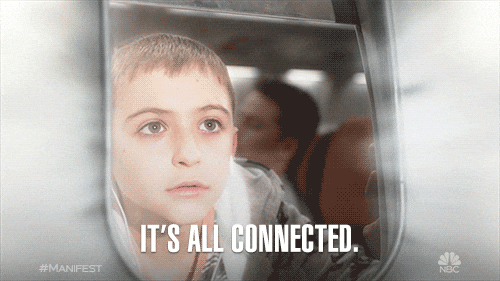
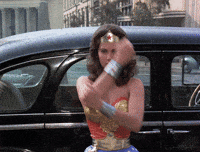
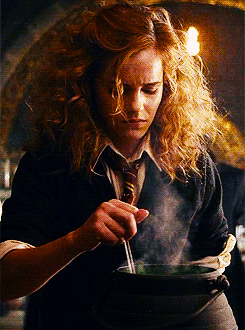
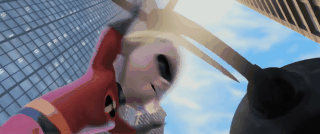

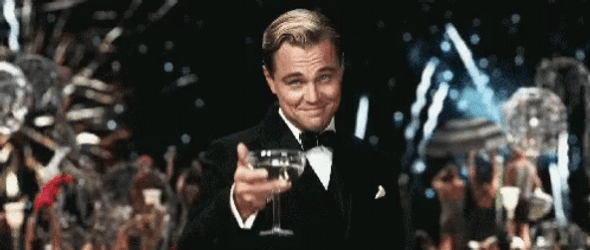

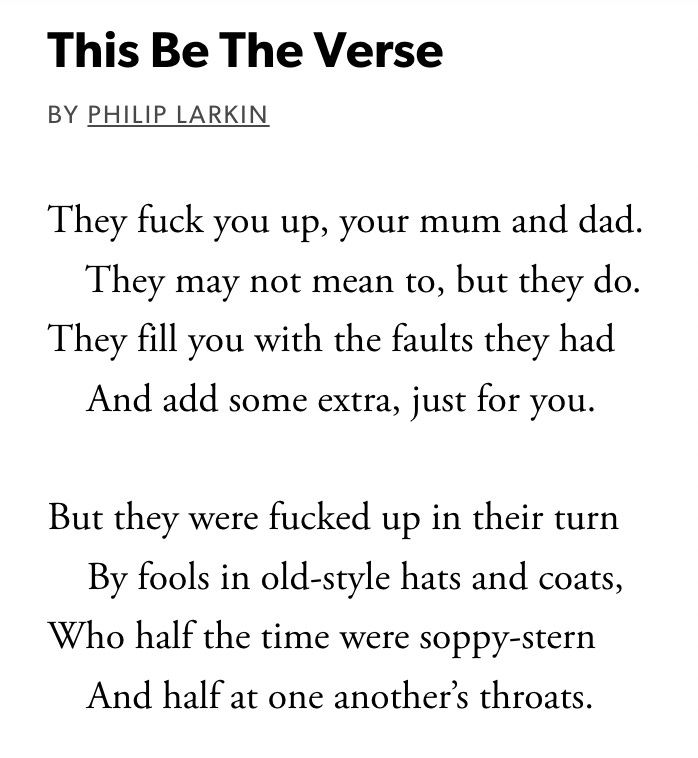
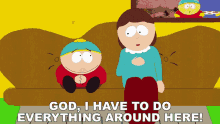
Few suggestions from a fellow "Self-Diagnosed Eldest Daughter Syndrome Patient"
Do It. From a huge people pleaser. If helping people makes you feel good, DO IT. I now try not to attach any expectations when I do something for anyone. I know I know, this kind of plays with the line "Oh, I am very independent". But that's a problem for other time. Right now, focus is on to not becoming the victim of the situation. Help if you can, cry (?) if you cannot.
Guilt and Shame. Doing even a tiny bit of something for myself makes me feel like I am being so selfish. I can't eat a whole chocolate without feeling a bit of shame. So, self-parenting. I keep telling myself it's okay, not a big deal, take space.
Talk about it. We all were stuck at home after covid and due to WFH, still here. Parents and brother acknowledging somethings has been very helpful. They now even push me to do things when they see me putting myself behind.
Acceptance. There are few perks which I think comes with this syndrome. I like caring for people. I love when someone says, what!! you still remember that tiny detail about me. You did THIS for me. Fights between parents have gone down too, and I am also trying not to see them from the lens of a perfect couple/mother/father. They will be fine is all I say to myself whenever there is an urge to intervene, and guess what? They have been fine. You cannot fix everything and everyone. So, my point being, Accept this is who you are. Take help from people around you in unlearning unhealthy habits.
Confrontation. Hate this! Can't confront people to save my life. Yes, walking on eggshells around parents will do that to you. But try. I have tried and have cried almost every time after that. But I promise you it gets better. Maybe don't confront people who have shown you that they don't deal with criticism nicely. I have been fortunate of having good friends with whom conflict doesn't feel like a first step towards fight, rather helps both of us understand each other better. So, surround yourself with connections like that.
Receiving. This is the one I struggle with the most. Being vulnerable or opening up to people feels like I am being a burden. Again, Self parent. Baby steps. I am learning this one too.
I am sure I am forgetting many things that I have learned over the years, but that's what I have for now. Feel free to call me out on my "suggestions" if they are unhealthy.
Also, also, beautifully written post. Loved the GIFs in between :D
And, sorry for any errors, typed in a hurry, couldn't proofread!
Mahima, what a lovely piece. I loved all the stories shared here. I’m the middle sis, and quite honestly it was only in your workshop, when you asked us to write on this prompt, did I really stop to think about my older sister and just how much she’s done for me... been there for me when often times I didn't even realise how she supported me. All of this while juggling her own life and world, millions of miles away from home herself.
Since then, I’ve really tried to be that person/ friend/ ear/ shoulder… all of the above and more to her ❤️ Thanks for writing this piece, just reminded me to go give her that big bear hug again 🥰